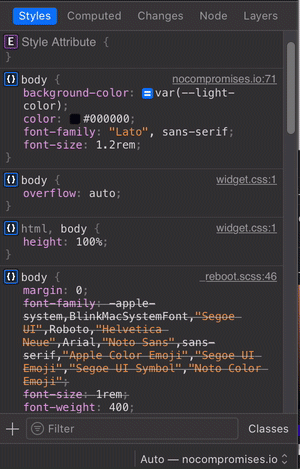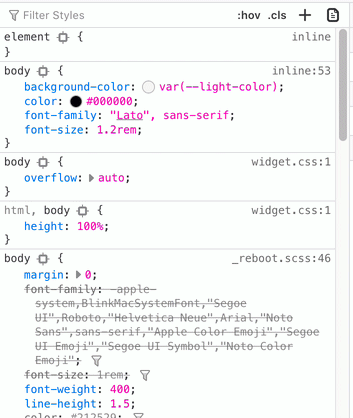Irish Goodbye - The Quiet Departure
Have you ever found yourself at a lively gathering, perhaps a party or a social event, and then, without a single word to anyone, you just... vanished? That quiet, unannounced exit, where you slip away like a ghost, is that what people call an "irish goodbye." It is a phrase that has, in some respects, been heard countless times, often without a full appreciation for its background or what it truly represents. This particular way of leaving a social situation has become a part of everyday conversation for many, yet its origins and the reasons people might choose to do it are not always clear to everyone.
This kind of departure, where a person simply leaves a place or an event without telling others or asking for permission, is a practice that has, you know, a few different names. Sometimes, it is called a "french leave" or a "french exit," and other times, it is known as an "irish exit." The core idea remains the same: a quiet slip away from the action. It is quite interesting to consider how this simple act of leaving has gathered so many different labels across different places and groups of people. So, what makes this specific kind of departure so noticeable, and why do we attach a particular cultural name to it?
For a long time, the act of leaving without saying a farewell was, in fact, thought of as something quite impolite, even unforgivable. However, over time, the perception of this quiet exit has, in a way, shifted. There are now plenty of discussions and writings that suggest it might actually be a very good way to leave a social gathering. We have, you see, talked about many aspects of Irish culture, from their songs and blessings to their beers and other customs. Yet, this particular tradition of the "irish exit" is one that many people might not be familiar with, even though it is, apparently, anything but a traditional farewell.
Table of Contents
- What is an Irish Goodbye?
- The Quiet Way Out - A Look at the irish goodbye
- Donncha O'Callaghan's Thoughts - A Different View
- Who is Donncha O'Callaghan?
- What Does the irish goodbye Mean to Others?
- Are Irish Goodbyes Always Rude?
- Other Names for the irish goodbye
- The Psychology Behind the irish goodbye
What is an Irish Goodbye?
A phrase like "irish goodbye" has, you know, become quite common in recent times, especially since the 2000s. It is a slang term that people use to talk about leaving a social gathering, like a party, without saying any farewells to anyone present. This type of departure is, in some respects, often connected with the drinking habits that some people associate with those from Ireland. The act itself is about quietly slipping away from a party, almost as if you were never there, without drawing any attention to your departure. It is a rather subtle way to make your exit, differing quite a bit from the more common practice of making sure you say your goodbyes to everyone you know, or at least to the host, before heading out the door. The term itself carries a specific image, a kind of silent retreat from the social scene.
The Quiet Way Out - A Look at the irish goodbye
The act of performing an "irish goodbye" is, basically, about making a quiet exit from a gathering without letting others know you are going. This can be seen as a way of, perhaps, avoiding the sometimes drawn-out process of saying farewells, which can involve many conversations and commitments. It is a method of leaving that, in a way, prioritizes a quick and unnoticed departure over the usual social rituals. For some, it is a convenient way to leave when they feel ready, without having to interrupt ongoing conversations or make a big deal about their departure. The idea is to just blend into the background as you head for the door, almost like a ghost. So, it is not about being rude on purpose, but more about a preference for a smoother, less noticeable exit from the social situation.
Donncha O'Callaghan's Thoughts - A Different View
When it comes to understanding why someone might choose to perform an "irish goodbye," there are, in fact, different ideas floating around. One interesting perspective comes from the world of sport. Donncha O'Callaghan, who is a rugby player from Ireland, wrote in his book from 2012 that he actually thinks this quiet way of leaving might be because Irish people are, perhaps, a bit more reserved. He made this observation, apparently, when comparing his own countrymen to some of the other national sports teams he had encountered during his career. This idea suggests that the quiet departure might not be about drinking habits at all, but rather about a certain shyness or a preference for not making a big fuss when it is time to go. It offers a different way to look at the behavior, moving it away from any negative associations and placing it more in the realm of personal disposition or cultural temperament. This view is, quite frankly, a refreshing take on the whole concept, giving it a deeper and more nuanced meaning than just a quick, unnoticed exit.
Who is Donncha O'Callaghan?
Donncha O'Callaghan is, you know, an Irish rugby player. His thoughts on the "irish goodbye" come from his autobiography, which he wrote in 2012. He offers a personal view on why people might leave parties without saying farewells. He thinks, you see, that it could be because people from Ireland are actually quite reserved. This is what he noticed, apparently, when he compared them to players from other countries. So, his perspective is, in a way, based on his own experiences with different national teams. He is a person who has spent time in various social settings, both on and off the field, and has had the opportunity to observe how different cultures interact and, indeed, how they say their goodbyes. His observations provide a unique insight into a common social behavior. We do not have a lot of personal details about him from the text, but his professional background as a rugby player and his published thoughts are what connect him to this discussion.
| Profession | Irish Rugby Player |
| Source of Views | 2012 Autobiography |
| Key Observation | Irish people are reserved compared to some other national teams. |
What Does the irish goodbye Mean to Others?
The term "irish goodbye" has, basically, gained a lot of popularity and has been featured in various forms of popular culture. For instance, it was the title of an episode of the television show "American Dad." It has also been mentioned in songs and numerous comedy videos found on platforms like YouTube. This shows that the concept of the "irish goodbye" has, you know, really made its way into the everyday language and entertainment of many people. The widespread use of the term in these different media suggests that it is a recognizable and, perhaps, even relatable behavior for a broad audience. It is not just a niche phrase but something that many people understand and, in a way, joke about. The fact that it appears in these contexts means that the act of quietly slipping away from a gathering is something that resonates with a lot of people, regardless of their background.
Are Irish Goodbyes Always Rude?
For a very long time, the act of leaving a party without saying goodbye was, in fact, seen as something quite impolite, even inexcusably rude. The historical view of this maneuver was, you know, that it showed a lack of respect for the host and the other guests. However, the perception of the "irish goodbye" has, in a way, changed over time. There is a growing sentiment that it can be moderately acceptable in certain situations. Many discussions and articles now suggest that, perhaps, it is actually the best way to leave a party. This shift in opinion shows that social norms are, apparently, not fixed and can evolve. What was once considered a clear breach of etiquette might now be viewed as a practical or even thoughtful way to depart, depending on the circumstances. So, the idea that it is always rude is, basically, not as widely held as it once was.
Etiquette experts, for instance, have weighed in on when this farewell gesture might be considered acceptable. They suggest that an "irish goodbye" can sometimes be perfectly fine, especially at very large parties or big gatherings. In such settings, it can be quite difficult, you see, to find everyone you know or even the host to say a proper goodbye. The sheer number of people can make a traditional farewell a rather long and complicated process. However, even in these situations, if it is at all possible, it is still generally thought to be best to try and find the host and quickly say a word or two of farewell. This shows a basic level of consideration. But, if that is not practical, then a quiet exit might be, in a way, the more sensible option. This means that the context of the gathering plays a very big role in determining whether an "irish goodbye" is acceptable or not.
Other Names for the irish goodbye
The concept of leaving a social event without informing others or seeking approval has, in fact, several names beyond "irish goodbye." Sometimes, it is called a "french leave," or even a "french exit." These terms, you know, refer to the same act of quietly slipping away. It is quite interesting how different cultures have, in a way, attached their own names to this particular behavior. For instance, the term "french exit" is, apparently, considered the English equivalent of an "irish goodbye." Meanwhile, there is also a phrase called "dutch leave," which also describes leaving a social event without saying farewells. This suggests that the act itself is not unique to any one culture, but rather a common human behavior that has been observed and named in various parts of the world. The variety of names points to a shared experience across different societies, where people sometimes choose to make an unnoticed departure from gatherings. This shows that the act of making a quiet exit is, basically, a widely recognized phenomenon, even if the names for it change from place to place.
The Psychology Behind the irish goodbye
From a psychological point of view, the "irish goodbye" can, in some respects, be seen as a form of avoidance behavior. It involves leaving a social situation without saying any goodbyes or acknowledging other people. This act can be interpreted as a way for someone to avoid interactions that might feel uncomfortable or awkward. For instance, some people might find the process of saying farewells to be a bit stressful. There is the potential for long conversations, or perhaps having to explain why they are leaving, or even dealing with attempts to make them stay longer. By simply slipping away, they bypass these potential difficulties entirely. It is a way to manage social anxiety or discomfort, allowing a person to control their exit without having to engage in potentially taxing social exchanges. So, the quiet departure is, you know, not always about rudeness, but sometimes about a personal strategy for managing social situations in a way that feels more comfortable for the individual. It is, basically, a coping mechanism for some people when faced with the social demands of leaving a gathering.
When it comes to saying goodbye, people from Ireland are, in a way, sometimes thought to have a knack for making it sound poetic, heartfelt, and, sometimes, completely invisible. Whether you are visiting the beautiful country itself or just fascinated by its language and customs, trying to understand how people there say goodbye is, you know, like getting a peek into the culture itself. This perspective suggests that the "irish goodbye" might be just one aspect of a broader cultural approach to farewells, which can range from very expressive to very subtle. The idea that it can be "invisible" speaks directly to the nature of the quiet departure, where the act of leaving is so smooth that it goes unnoticed. This highlights the varied ways in which people from different places approach the end of a social interaction. It is a reminder that social behaviors, even something as simple as leaving a party, can carry deeper cultural meanings and preferences. So, the quiet exit is, in some respects, a fascinating piece of a larger cultural puzzle.
- Bcps Schoology
- Ukulele History
- Realtor Irina Alexander
- Rick Moranis Filmography
- San Diego Craigslist

Seeing Calculated Values of CSS Variables in Browsers | Aaron Saray

Seeing Calculated Values of CSS Variables in Browsers | Aaron Saray

Steps to Register for the IELTS at British Council | Nurseonlineph